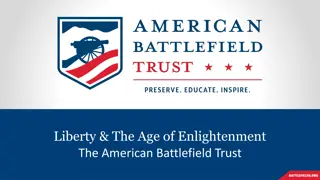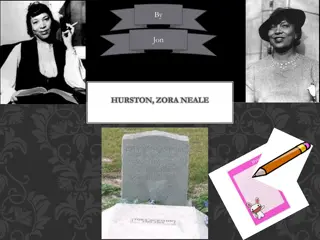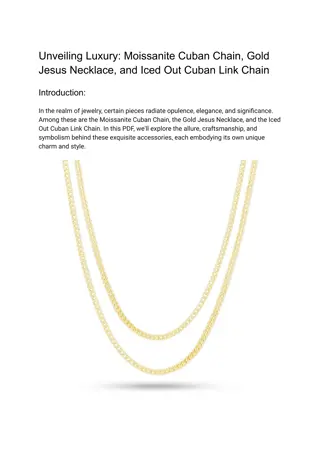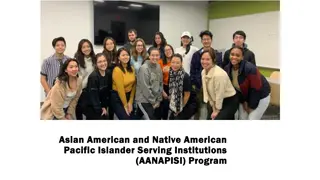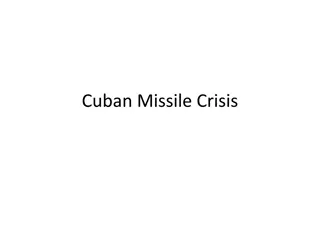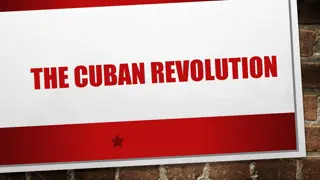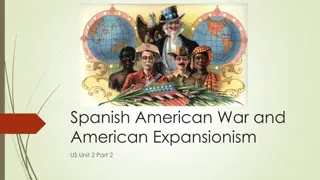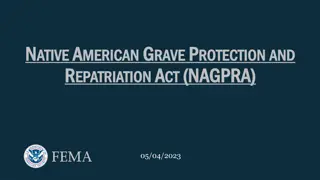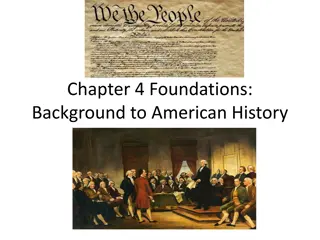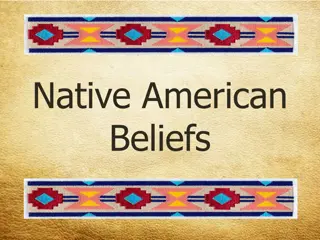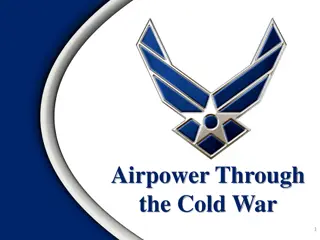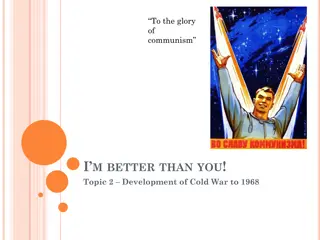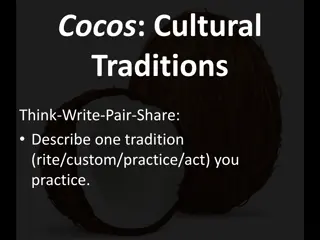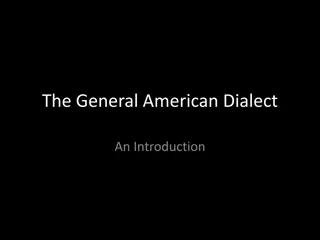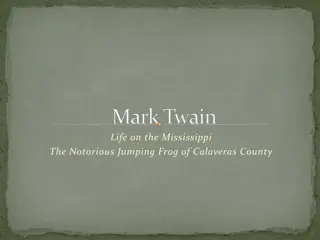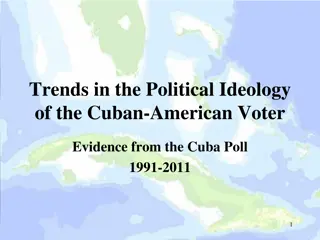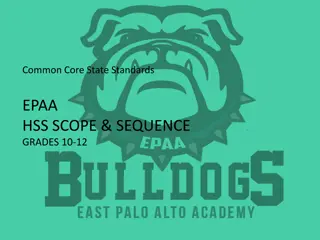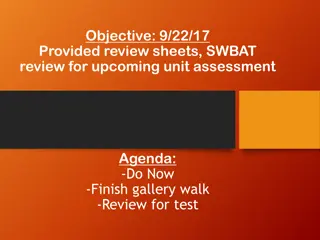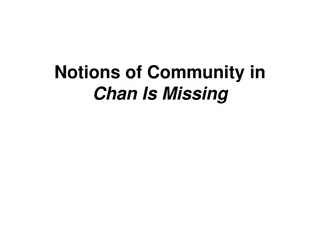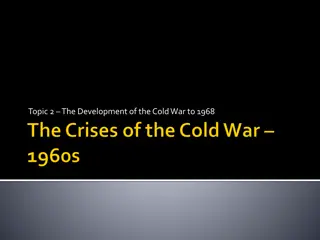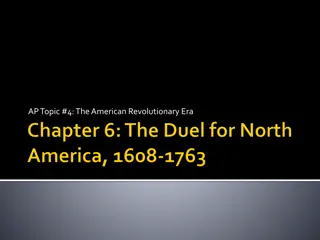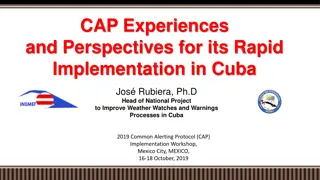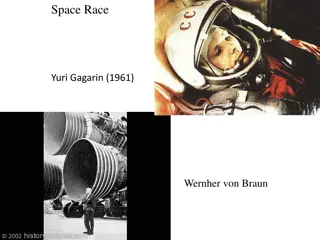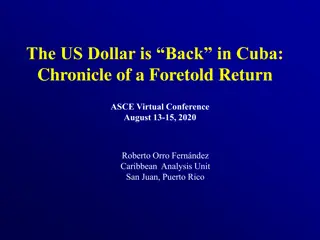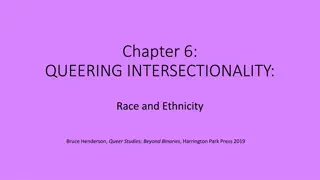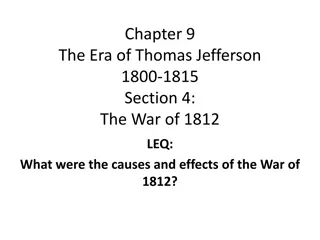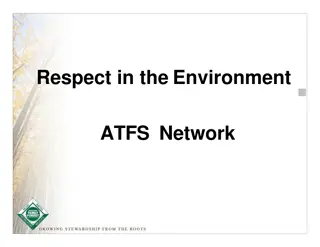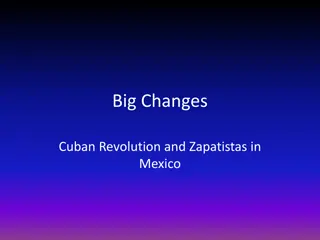Science and Higher Education: challenges and opportunities
The Cuban higher education system, including its institutions, programs, research centers, and postgraduate studies. Discover the expected impacts on society and the emphasis on innovation in university training.
0 views • 19 slides
Government Management System Based on Science and Innovation in Cuba
The Cuban Revolution under Fidel Castro emphasized the role of knowledge, science, and technology in national development. With the Constitution of the Republic in 2019, science, technology, and innovation (STI) are recognized as crucial for prosperity, sovereignty, and independence. Amid the COVID-
2 views • 18 slides
Liberty & The Age of Enlightenment The American Battlefield Trust
The Age of Enlightenment, with its emphasis on natural law, liberty, progress, and constitutional government, greatly influenced American thinking and the Revolutionary War. Key figures like John Locke and Sir William Blackstone contributed ideas of social contract and law that shaped American gover
2 views • 15 slides
Zora Neale Hurston: African-American Writer of the Harlem Renaissance
Zora Neale Hurston, born in Notasulga, Alabama, in 1891, was a prominent African-American writer known for her works reflecting the African-American culture and folklore. Growing up in Eatonville, Florida, and later studying at Barnard College, she stood out among her contemporaries for her portraya
2 views • 4 slides
Understanding Health Challenges and Communication in Cuban Families
Explore the main health issues affecting Cuban families, including changes in family structure, fertility rates, and societal trends. Delve into the role of communication in addressing family crises and promoting health within communities. Discover key objectives focused on identifying, understandin
5 views • 43 slides
CUBAN REVOLUTION
Explore the impact of the Cuban Revolution through a series of political cartoons, focusing on the visuals, message, and persuasive techniques used to convey opinions on key events such as Fidel Castro passing the presidency to his brother Raul, depiction of Cuban embargo, and the Cuban Missile Cris
2 views • 14 slides
Discover Your Signature Style at King Ice's Chains Store
Welcome to King Ice's chains store, your ultimate destination for stylish and statement-making chains. Whether you're searching for a classic Cuban link chain, a bold cross chain, or a unique Buddha chain, our store has everything you need to elevate your look and express your individuality. With a
8 views • 5 slides
Overview of AANAPISI Program in the United States
The Asian American and Native American Pacific Islander Serving Institutions (AANAPISI) Program aims to support institutions with a minimum of 10% Asian American and Native American Pacific Islander undergraduate enrollment. Currently, there are 54 funded AANAPISI institutions across 16 states and t
0 views • 13 slides
Understanding the Cuban Missile Crisis in Historical Context
Explore various aspects of the Cuban Missile Crisis, including the political cartoons, Kennedy's response, USA's reactions to the Cuban Revolution, USSR's involvement in Cuba, and the outcomes of the crisis. Learn about the key players, their decisions, and the impact on Cuba, USA, and the USSR.
2 views • 37 slides
Evolution of American English Vocabulary and Language Features
American English exhibits arachaic features and early changes in vocabulary due to colonial influences and the distinct political and administrative system. The language has preserved old-fashioned elements from the seventeenth and eighteenth centuries, while also incorporating new words inspired by
0 views • 5 slides
The Cuban Revolution: Batista to Castro
Fulgencio Batista's rise to power in Cuba in 1933 through coups led to army influence in the government. Fidel Castro, born into an upper-class family, organized rebels to overthrow Batista in the Cuban Revolution. After failed attempts and imprisonment, Castro regrouped, defeated Batista's forces i
1 views • 8 slides
Inspirational Women in History
Explore the remarkable stories of Mercedes O. Cubria, the first Cuban-born woman officer in the U.S. Army, and the courageous Tubman, a powerful speaker in antislavery movements. Learn about their career milestones, achievements, and impact on history.
2 views • 13 slides
Spanish-American War and American Expansionism: A Look Back in History
Explore the causes and impacts of the Spanish-American War, including the influence of Yellow Journalism, nationalism, and imperialism on American expansionism during the late 1800s. Learn about key figures like Theodore Roosevelt and the Rough Riders, and the significance of policies like the Monro
0 views • 25 slides
Cultural Awareness for Drug Courts Working with Native American Participants
Understanding the cultural nuances of Native American communities is crucial for Drug Courts collaborating with Tribal Healing to Wellness Courts. This involves acknowledging tribal sovereignty, regional and cultural differences, customs, spirituality, and communication styles unique to American Ind
0 views • 22 slides
Native American Repatriation and NAGPRA Overview
The Native American Graves Protection and Repatriation Act (NAGPRA) enacted since November 1990 establishes ownership of cultural items excavated on Federal or Tribal land. It requires returning such items to Native American descendants and affiliated tribes. The Act also criminalizes trafficking in
1 views • 8 slides
Cold War Stations - Berlin Airlift and More
Delve into the historical events of the Cold War through the lens of key stations like the Berlin Airlift, Korean War, Sputnik, U-2 Incident, Berlin Wall, Marshall Plan, and Cuban Missile Crisis. Explore the significance of the Berlin Airlift, a pivotal moment in Cold War history, where Western alli
2 views • 54 slides
American Revolutionary Era: Key Events and Figures
The American Revolutionary Era marked by the formation of the Constitution, Washington's militia, key figures like Jonathan Trumbull and John Peter Muhlenberg, the emergence of American culture, the Articles of Confederation, and calls for a stronger government. This period saw a shift towards a mor
0 views • 17 slides
Exploring Native American Beliefs and Spiritual Practices
Delve into the rich tapestry of Native American beliefs, traditions, and spiritual practices, including their diverse worldviews, sacred connections to nature, and unique cultural expressions. Discover the origins of terms like "Indian" and the vast linguistic diversity among different Nations. Cont
3 views • 13 slides
Airpower Through the Cold War: A Historical Overview
This historical overview delves into the significance of airpower during the Cold War era, exploring key events such as the National Security Act of 1947, the Berlin Airlift, and the Cuban Missile Crisis. It outlines the establishment of the United States Air Force, the circumstances post-WWII, the
0 views • 26 slides
The Cold War Rivalry: 1950s-1960s Espionage and Arms Race
The period from the 1950s to the 1960s was marked by intense competition between the Soviet Union and the US in the realms of espionage, space exploration, and nuclear armament. The Cold War rivalry led to significant advancements in technology and heightened tensions, culminating in key events like
0 views • 7 slides
Exploring Cultural Traditions and Practices
This content highlights the importance of cultural traditions and rituals, such as the Afro-Cuban divination ritual involving coconut shells. Learn about the significance of these practices and the impact they have on individuals and communities. Engage in a cultural traditions gallery walk to deepe
0 views • 8 slides
Washington Irving: Father of American Fiction and Pioneer of American Romanticism
Washington Irving, an influential American author of the early 19th century, is revered as the Father of American fiction. Known for iconic works like "The Legend of Sleepy Hollow" and "Rip Van Winkle," Irving played a crucial role in establishing American literature as an independent art form. His
1 views • 14 slides
Overview of the General American Dialect
The General American Dialect, also known as GenAm, is a widely preferred dialect of English characterized by minor differences in pronunciation compared to regional American accents. It is distinct from Southern, Midwestern, and Northeastern accents and is one of the two global English dialects alon
0 views • 13 slides
Mark Twain's Humorous Tales and Regionalism in American Literature
Mark Twain, a master of humor and regionalism, depicted American culture in a distinctive way through his works such as "The Notorious Jumping Frog of Calaveras County" and "Life on the Mississippi." His stories showcase exaggerated characters, humorous situations, and unique dialects, reflecting th
0 views • 8 slides
Changing Trends in Cuban-American Voter Ideology
Explore the evolving political ideology of Cuban-American voters from 1991 to 2011 through data on migration, residency, naturalization, and political exceptionalism. Uncover how these trends have influenced Miami's Latino demographics and the Cuban perspective on US/Cuba relations.
0 views • 24 slides
American History Curriculum for Grade 11 - Semester 1
This American history curriculum for Grade 11 Semester 1 covers key topics such as the Declaration of Independence, American Revolution, industrialization, urbanization, immigration, imperialism, and the United States' emergence as a world power. Students will examine diverse aspects of American his
0 views • 11 slides
Unit Assessment Review: U.S. Imperialism History Lesson
Review session for upcoming history unit assessment on U.S. Imperialism. Topics covered include key events such as the Philippines under American control, reasons for Mark Twain's anti-Imperialist stance, factors driving American foreign policy towards imperialism, the case of Hawaii's Queen Liliuok
0 views • 15 slides
Exploring Asian American Identity Through "Chan Is Missing" by Wayne Wang
Chan Is Missing" (1982) directed by Wayne Wang is a groundbreaking Asian American independent feature film that delves into themes of Asian American identity, hyphenated identity, assimilation, and hybridity. The film, shot on a shoestring budget in San Francisco's Chinatown, showcases the community
0 views • 26 slides
The Cold War: Key Events up to 1968
West Berlin thrived while East Berlin suffered as the city became divided by a wall in 1961. The Vietnam War saw North and South Vietnam backed by different superpowers, leading to conflict until 1975. Cuba turned communist under Fidel Castro in 1959, prompting tensions with the US, notably during t
0 views • 9 slides
The American Revolutionary Era Overview
The American Revolutionary Era marked a period of intense rivalry between France, England, and Spain for control of North America, leading to conflicts like the French & Indian War. Key events such as the founding of Quebec, exploration by Robert de La Salle, and establishment of New Orleans shaped
0 views • 39 slides
CAP Implementation in Cuba: Experiences and Perspectives for Rapid Progress
José Rubiera, Ph.D., discusses the urgent need for implementing the Common Alerting Protocol (CAP) in Cuba to enhance weather watches and warnings. The challenges faced by the Cuban Meteorological Service are explored, along with plans for CAP implementation in 2020. The overview of Cuba's weather
0 views • 37 slides
Cold War and the Vietnam Conflict: A Historical Overview
Explore the tumultuous era of the Cold War and the Vietnam Conflict, including key events like the Cuban Missile Crisis, the Gulf of Tonkin incident, and the Tet Offensive. Discover how Cold War tensions shaped US military strategy and the struggles faced in Vietnam, from political unrest to militar
0 views • 18 slides
The Resurgence of the US Dollar in Cuba: Implications and Challenges
The return of the US dollar to Cuba after 15 years has significant implications on the economy and the Cuban Peso. This resurgence, exacerbated by the COVID-19 crisis, has highlighted the weaknesses of the Cuban monetary system and the challenges it faces in unifying its currency. The distrust in lo
0 views • 21 slides
Influence of American Culture on American Christianity: A Critical Analysis
This content explores the relationship between American culture and American Christianity, discussing how religion reflects the cultural values of individualism, optimism, and the concept of a blessed nation. It delves into the concept of Biblical individualism, the influence of prosperity gospel, a
1 views • 7 slides
Exploring Queer Identities in Native American and African-American Communities
Delve into the nuanced intersections of race, ethnicity, and queerness within Native American and African-American communities. From the reclaiming of Two-Spirit identities to the presence of queer writers in literary spaces, this exploration sheds light on the complexities of identity, resistance t
0 views • 38 slides
The War of 1812: Causes, Events, and Effects
The War of 1812 was influenced by issues such as British impressment of American sailors, arming Native Americans, and trade restrictions. Despite opposition, President James Madison declared war in 1812. The conflict marked a period of American nationalism, with War Hawks pushing for war and Doves
0 views • 16 slides
Promoting Respectful and Safe Environments in the American Forest Foundation
This content highlights the importance of maintaining a respectful and safe environment, particularly within the American Forest Foundation and the American Tree Farm System. It emphasizes understanding and appreciating the distinguishing characteristics of individuals, recognizing and addressing ha
0 views • 35 slides
Understanding the Cold War: Origins, Consequences, and Ideological Conflicts
Explore the origins, consequences, and ideological conflicts of the Cold War through key events like the Iron Curtain, Berlin Airlift, Korean War, and Cuban Missile Crisis. Learn about communism, democracy, and the impact of beliefs and ideals on attempts to stop the spread of communism during this
0 views • 16 slides
American Literature Through the Ages
Explore the rich tapestry of American literature covering American Indian culture, New England Puritanism, the 18th century American Enlightenment, and the American Renaissance. Discover the oral traditions of American Indian tribes, the puritanical values of New England, the democratic origins of A
0 views • 17 slides
Impact of Cuban Revolution and Zapatistas in Latin America
Analyzing the significant 20th-century events in Latin America, this content delves into the Cuban Revolution's lasting impact on Cuba and the region, alongside the political outcomes of the Zapatista guerrilla movement in Mexico. It covers essential questions, historical context, and the repercussi
0 views • 26 slides


